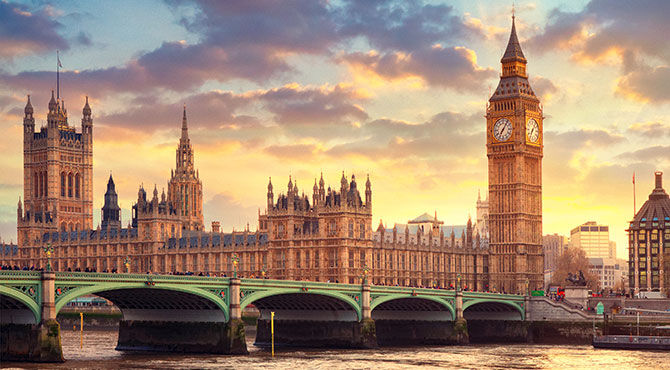PM Johnson facing Brexit and immigration headaches
The Queen will invite Boris Johnson to take over as British prime minister on Wednesday after his convincing victory in the poll among Conservative Party members to elect a replacement for Theresa May.

 23 July 2019
23 July 2019No-deal Brexit: many warnings of "disastrous" consequences
The Bank of England, HM Treasury, business leaders and economic think-tanks have repeatedly warned of likely "disastrous" consequences of a no-deal Brexit but Mr Johnson has steadfastly refused to rule this out, claiming the UK could thrive under WTO rules and by doing new trade deals with the likes of the US - though economists had queried whether either would be as simple as he maintains.However, Mr Johnson says a no-deal is by no means inevitable and believes he will be able to renegotiate the withdrawal agreement with the European over the next three months, even though Brussels has repeatedly ruled out such a renegotiation.The new PM's challenges are complicated by the fact he will have a majority of just two in the House of Commons, and that assumes the ten Democratic Unionist Party MPs remain on side.With several of his own Tory MPs already in open revolt, Mr Johnson could not only face problems in getting any amended withdrawal deal through parliament, but might even fail to get through a no-deal Brexit.Hunting unicorns: Boris Johnson and the Irish backstop
A principal stumbling block is the 'Irish backstop' - the UK and EU agreement that there should be no new physical checks or infrastructure at the border between Northern Ireland and the Republic, regardless of what happens in Brexit.Mr Johnson believes that, without allowing Ulster to remain in the customs union with the EU to maintain the seamless border, the problem can be solved with technology to track trade between the two sides of the border. Again, it is a solution many experts challenge.Analysts at JP Morgan have become the latest to say the Brexit plan supported by Mr Johnson "fails to put forward ideas that are likely to work in either practical or political terms".The analysis, which has been sent to clients this week, describes Mr Johnson's quest for a withdrawal agreement without the Irish backstop as like hunting a unicorn. "A unicorn with a lick of paint is still a unicorn," according to analysts Malcolm Barr and Allan Monks.The Prime Minister's plan for post-Brexit immigration policy
And beyond Brexit, there is the dilemma of a new immigration policy to be implemented when the nation is outside the EU and freedom of movement for nationals from the European Economic Area (EEA) ends.The skills-based proposals put forward by Mrs May's government in a white paper last December have been largely rejected by Mr Johnson, who has come out in favour of an Australian-type, points-based system.While Mr Johnson appears ready to ditch Mrs May's long-held (and never-achieved) pledge to reduce annual net migration to below 100,00, he has repeatedly called for greater controls while keeping Britain "open to talent, open to immigration".His idea for a points-based system appears to take in such factors as whether or not a would-be immigrant has a firm job offer, and their ability to speak English. Mr Johnson has also pledged to block the ability of new arrivals to claim social benefits immediately upon moving to the UK."We must be much more open to high-skilled immigration such as scientists, but we must also assure the public that, as we leave the EU, we have control over the number of unskilled immigrants coming into the country," he said recently.Such a stance would restore public faith in, and democratic control of, the immigration system, while being "tougher on those who abuse our hospitality", he added.But James Kirkup, director of the Social Market Foundation think-tank and contributor to a report on immigration published earlier this month, says: “Anyone who leads Britain needs to have an honest conversation about immigration, its challenges and its benefits. That means an end to simple, headline-chasing promises and a new focus on the needs of Britain’s employers, regions and communities.”In a letter last week to both Mr Johnson and Mr Hunt, a group of business and education bodies called on the new prime minister to lower the salary threshold for foreign workers from the £30,000 proposed in the white paper, to £20,000. Such a move would help avoid "acute" skills shortages looming after Brexit.The letter added: "Without the ability to access international talent, many of our world-class sectors are at significant risk. "As the UK prepares to leave the EU in the near future, it is imperative that the government puts in place measures that will avoid employers facing a cliff-edge in recruitment, and works towards building a successful economy that is open and attractive."Subscribe to Relocate Extra, our monthly newsletter, to get all the latest international assignments and global mobility news.Relocate’s new Global Mobility Toolkit provides free information, practical advice and support for HR, global mobility managers and global teams operating overseas. Access hundreds of global services and suppliers in our Online Directory
Access hundreds of global services and suppliers in our Online Directory
©2025 Re:locate magazine, published by Profile Locations, Spray Hill, Hastings Road, Lamberhurst, Kent TN3 8JB. All rights reserved. This publication (or any part thereof) may not be reproduced in any form without the prior written permission of Profile Locations. Profile Locations accepts no liability for the accuracy of the contents or any opinions expressed herein.






































